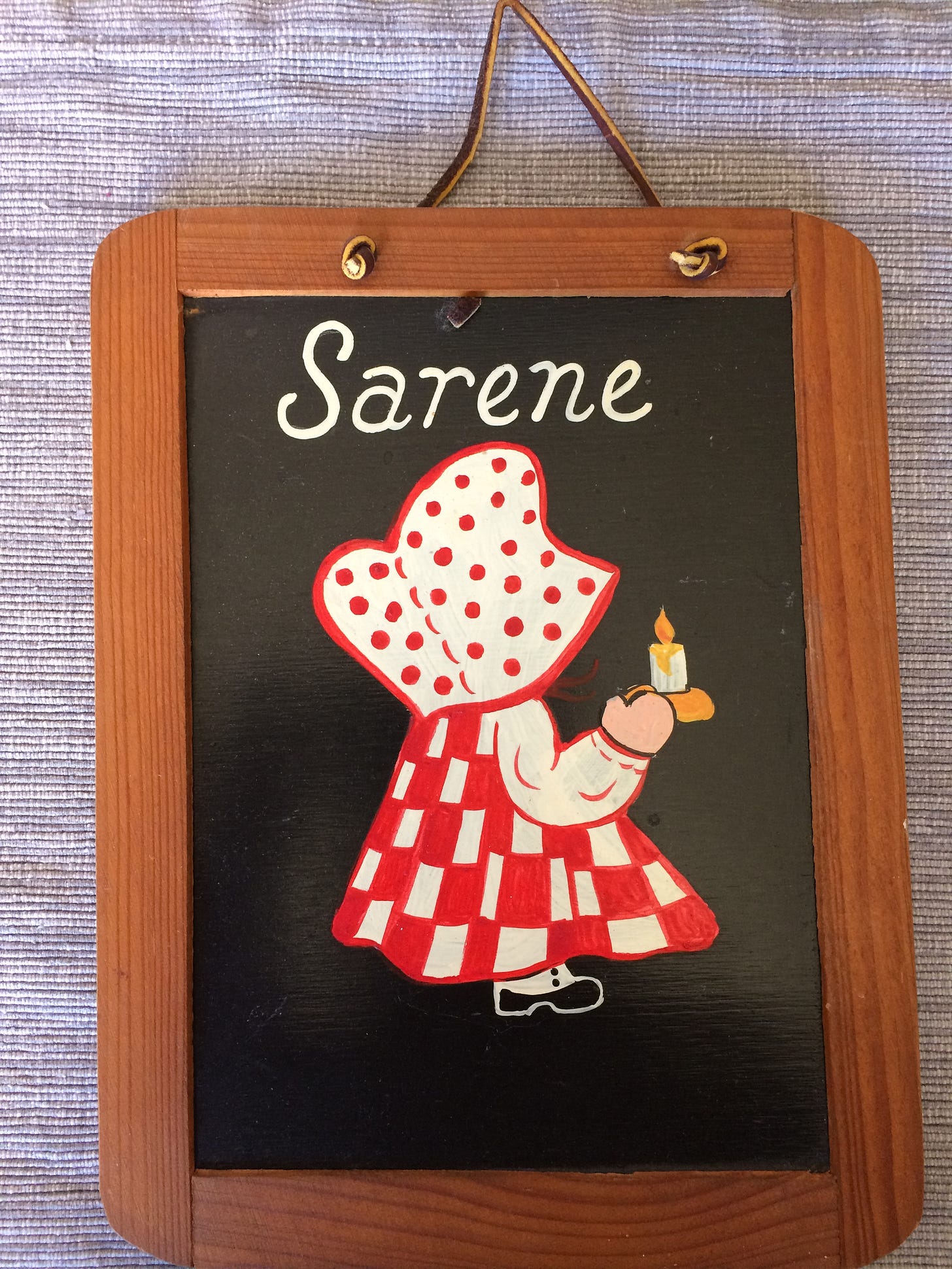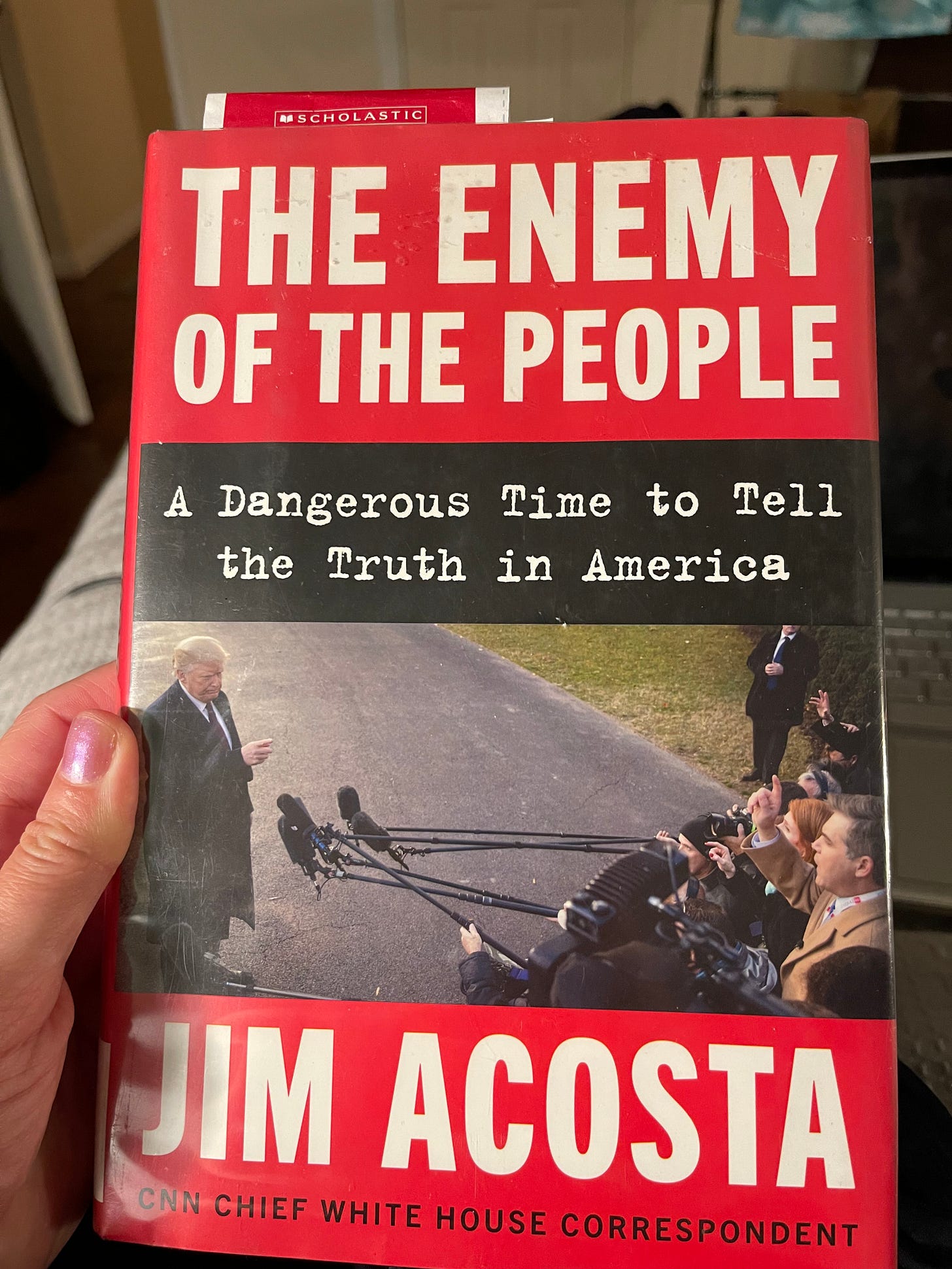I have an awesome name.
But that name has also been the source of a ton of childhood heartache.
About a week ago, I saw this clip from a Jewish stand-up comedian, and OH. MY. G-D did this bit resonate:
He talks about how Ashkenazi Jews (aka Jewish people from Eastern and Central Europe; I’m Ashkenazi) have a tradition of naming their children after dead relatives. The punchline is how, in many cases, these honorable ancestors had difficult lives (read: pogroms, Nazis, etc.) and now their descendants are saddling their own children with a lot of unresolved baggage.
I appreciated this bit because I have the quintessential love-hate relationship with my name.
Yes, I am the recipient of the long-held Ashkenazi naming tradition: I was named for my maternal great-grandmother, Sarah, who died about a decade before I was born. I even did a fourth-grade report on her, where I learned the basics: Like all of my other great-grandparents, Sarah was extremely fortunate to emigrate to the United States circa 1920, well before the Nazis invaded Poland, her home country. This allowed my grandmother to be born in the safety and comfort of the United States.
Sadly, Sarah’s life as an early-20th-century immigrant was rough: She was a homemaker and breeder (and little else). Folks in the Trump administration would call her the ideal woman.
While I think it’s a lovely tradition to name children after their deceased relatives, my conflict over my name is pretty layered.
I wasn’t the only person in my family named after my great-grandmother Sarah. My cousin, born three weeks before me, received the name “Sara,” while I received “Sarene.” I never understood why we were given such similar names (we also have the same Hebrew name), especially because, you know, we’re not the same person.
But I will be forever grateful to my mother for being ahead of her time. She gave me a name that stood out. A name that makes great copy (her words, not mine), and a name that is always a fun conversation-starter. Growing up in the 1980s, however, when every other girl was named “Jessica” or “Jennifer” (no disrespect to anyone with that name!), wasn’t easy. This was well before the age of Apple Martin or, if you’ll forgive the example, X Æ A-Xii Musk, so attending school as “Sarene Leeds” came with a ton of bullying.
Fortunately, the bullying dissipated as I entered adulthood, though it was impossible to avoid the occasional lighthearted teasing: When my husband and I were in Maui for our honeymoon, we attended this adorably fun magic show (don’t judge!), and the magician, after learning my name, paused with a twinkle in his eye, asking, “Were your parents at Woodstock?”
While I disagree with my mother and aunt’s decision to give me and my cousin such similar names, I still think the name “Sarene” is one of the best gifts I ever got from my mom: It’s unique, it’s immensely cool, and it honors my great-grandmother in a modern way.
When it was time to name my daughter, however, I chose not to follow the Ashkenazi naming tradition because I have mixed feelings about my daughter’s great-grandmothers (my grandmothers). It wouldn’t be fair to burden her with my own generational baggage (sound familiar?) Besides, I also wanted to start a new tradition focusing on individuality and kick-ass women.
So I gave my daughter the most empowering name I could think of: Diana, after Wonder Woman.
Lynda Carter's Wonder Woman/Diana Prince was the first feminist icon to enter my psyche. I loved and idolized her. She was everything I always wanted to be: Kind, strong, beautiful, and she didn’t brook any bullshit. I named my daughter Diana because I wanted to gift her two things I never had as a child: strength and confidence.
I’m proud to say she has both in spades.
But just because I chose not to name my daughter in the traditional Ashkenazi Jewish way doesn’t mean she has to follow my lead if she becomes a parent someday. As long as the name comes from the heart, as it did for my mother, and as it did for me — that’s all that matters.
A couple of quick extras
I recently finished
’ excellent memoir A Well-Trained Wife. Highly recommend:I first learned about Tia when she appeared on the Prime Video documentary Shiny Happy People: Duggar Family Secrets. Her raw account of the decades she spent under the thumb of the Christian patriarchy should be required reading for all Americans, because the correlation between church-based Christian patriarchy and the Christian nationalist government we currently find ourselves in is not a coincidence.
And that just because women are rising in the current administration doesn’t mean they have women’s interests at heart:Girl knows her stuff. Period. I also recommend checking out Tia’s Substack and Instagram. She understands the dangers of putting religion (any religion) at the center of your life, because she’s lived it firsthand.
Next up? My
fangirling continues! I just picked up his 2019 book, The Enemy of the People, about his experiences covering the first Trump administration:Remember to support your local library!
My 30-year high school reunion is this weekend, and I want to take this moment to say -- no, I haven't changed my mind, LOL! I'm more than content with my decision not to attend. (From a completely practical standpoint, I need this weekend off. Our May calendar is jam-packed, and this is my one weekend to breathe.)
But to the handful of high school classmates who have graciously subscribed to my Substack and reached out since I published my post about the reunion (see above), I genuinely hope you have a lovely time -- and that you'll share the hot goss with me afterward ;-)
You may remember our prom theme song was Simple Minds' "Don't You Forget About Me," but I'd prefer to leave you with the Scottish band's exponentially better track "Alive and Kicking" instead. (I saw Simple Minds at the Beacon Theatre 20+ years ago, and they closed the show with this banger.)Finally, if you didn't catch Bruce Springsteen's electrifying speech Wednesday night at his show in Manchester, England, I urge you to watch and listen to everything he said.
He said the quiet parts out loud. He called the Trump government “corrupt, incompetent, and treasonous.”
Thanks, Boss.
My challenge to you all is to say the same thing -- publicly. Don’t text me these thoughts: Post them for all the world to see. (Again, if you're a federal worker, I get why you can't. But I'm talking about the people who have the liberty to speak out against the administration, and choose not to. I see you. All of you.)
And on that note, here’s your friendly reminder that “Born in the U.S.A.” is NOT a patriotic anthem.
As always, I thank you for reading,
—Sarene











Fellow Sarene here. Growing up, I so wanted a “normal” name like Susan. It took me a long time to fall in love with Sarene. Now I see it as a gift from my parents.